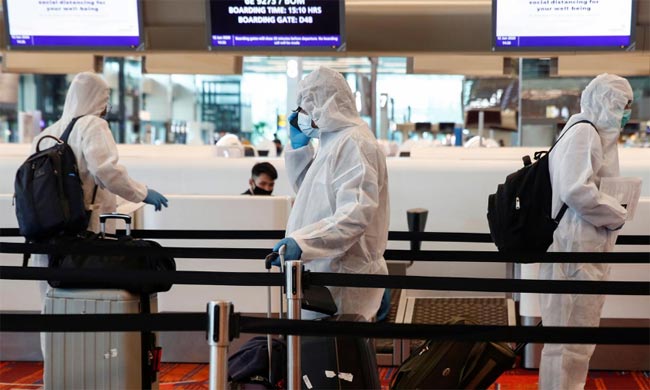Singapore to make travellers wear electronic tags to enforce quarantine
August 3, 2020 12:42 pm
Singapore will make some incoming travellers wear an electronic monitoring device to ensure that they comply with coronavirus quarantines as the city-state gradually reopens its borders, authorities said on Monday.
From August 11, the devices will be given to incoming travellers, including citizens and residents, from a select group of countries who will be allowed to isolate at home rather than at a state-appointed facility.
Similar measures using electronic wristbands to track peoples’ movements during quarantine have been used in Hong Kong and South Korea.
Travellers to Singapore are required to activate the device, which use GPS and Bluetooth signals, upon reaching their home and will receive notifications on the device which they must acknowledge.
Any attempt to leave home or tamper with the device will trigger an alert to the authorities.
Hong Kong in March introduced a scheme for incoming travellers to use a slim electronic wristband, similar to a tag worn by hospital patients, to enforce quarantines for arriving passengers. South Korea has also used such wristbands connected to smartphone apps for those who violate quarantine.
Singapore, which has not given details on what the device will look like, said in a statement that it will not store any personal data and does not have any voice or video recording function.
Those aged 12 and below will not have to wear the devices.
The city-state, which is also planning to give all residents a wearable virus-tracing dongle, has tough punishments for breach of its quarantine and social distancing rules.
Under the Infectious Diseases Act, punishments can be fines of up to S$10,000 ($7,272) or imprisonment of up to six months, or both. It has also revoked the work passes of foreigners who flouted the rules.
Singapore has reported 52,825 coronavirus infections, mostly due to mass outbreaks in cramped migrant workers dormitories, but imported cases have been creeping up in recent days.
Source: Reuters














